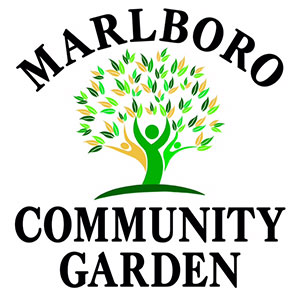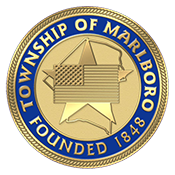Marlboro Community Garden
Rules and Regulations

1. Mission Statement The Marlboro Community Garden (MCG) is dedicated to the support of recreational community gardening. It enables gardeners to grow produce using best gardening practices. Benefits include preservation of green space and production of quality produce as members work collaboratively and share information about gardening techniques. The MCG also provides an educational forum for the members to expand their horticultural knowledge through cross-cultural and inter-generational connections and fosters community pride.
2. Description The Marlboro Community Garden is operated by the Marlboro Shade Tree Committee (MSTC) under Section 337 of the Code of the Township of Marlboro. A volunteer manager serves at the pleasure of the committee.* The community garden is comprised of 106 individually assigned plots within a township park at 82 Tennent Road, Morganville, NJ 07751 adjacent to the Morganville Volunteer Fire Company. Members who purchase a plot agree to abide by the rules and regulations set forth by the Marlboro Shade Tree Committee.
Special gardens at the site include a perennial garden, a pollinator garden, a communal herb garden, and a Monarch Butterfly Way Station.
3. Application Process The MSTC is responsible for the online membership registration that will be announced via the Township website, marlboro-nj.gov There will be two garden meeting dates scheduled during January and February. These meetings will be advertised locally and in the garden e-mail. Members, both returning and new, are required to attend at least one of the scheduled meetings. Failure to attend either meeting will result in the interested party being placed at the bottom of a waiting list. If there are plots available, membership will still require attendance at a meeting with the personnel who manage the garden.
Plots will be assigned after the February meeting. The Township will mail invoices in March.
Each participant must provide the required personal information and pay the annual fee of $40 for a 4 X 10 foot plot ($30 for seniors, 60+) or $70 for two 4 X 10 foot plots or one 4 X 20 foot plot ($50 for seniors). Non-residents add $10 to the above fees. No refunds will be offered. Returning members in good standing (see # 5 below) will retain legacy for a single garden plot, after which any available plots will be assigned to those on the waiting list and then new gardeners. If interested applicants exceed the number of plots, these additional names will be assigned plots by a random drawing. The MSTC will accept an application for a plot from only one member per residence.
4. Garden Operations The MCG will be open daily from dawn until dusk.
Gardeners are expected to assist with weed control, compost production and other general needs of the garden. Every member is required to perform at least one volunteer service for the garden. Opportunities to volunteer will be published via the garden e-mail.
The garden is surrounded by a protective fence and locking gates. Tools are available in a shed for use within the garden. Members will have combination lock access. The last member to leave is responsible for locking the shed and the gate regardless of the time of day.
5. Garden Plots An MCG plot will measure either 80 square feet or 40 square feet. Features abutting each plot include surrounding deer fence, neighboring plots, common pathways, water hardware, compost bins and common storage and seating areas.
To remain in good standing, a gardener is expected to regularly maintain his/her plot and its perimeter. Plot maintenance is defined as follows: plants are watered as needed, produce is harvested regularly, plots are free of weeds, trash, diseased or insect infested plants, and plants that have reached the end of their productive life are removed.
All plots must be planted by June 1 and cleaned out by November 30, with the exception of perennials and cool weather or wintering-over plants, such as rhubarb, herbs, garlic, leeks, etc. During fall clean-up, gardeners will remove any past-ripe produce, unproductive plants, roots, stakes, trellising, tomato cages, netting or other garden accessories or supports both in and around the plot. A thoroughly clean and weeded plot is a condition for membership in future seasons. The MSTC reserves the right to recycle and/or discard accessories not removed on a timely basis.
Gardeners are not permitted to erect permanent structures in plots or common areas. Basic temporary plant supports such as tomato cages, stakes, or trellises that do not exceed eight (8) feet in height are allowed.
Gardeners must notify the MCG manager in the event of their inability to initiate or maintain a plot. In such cases, the plot will be surrendered and re-assigned. If a garden plot is not maintained, warnings will be issued. If the gardener receives multiple warnings within a growing season, the issue will be brought to the full Marlboro Shade Tree Committee for disposition of the plot.
A minimum of one garden plot will be managed by volunteers or a civic group for the purpose of supporting specified food pantries.
The MCG offers two raised plots of 24 inches in height for gardeners who have physical limitations that would prevent them using our standard 12 inch plots. A written request along with an explanation of need should be sent to the MSTC at Garden, 1979 Township Drive, Marlboro, NJ 07746. These plots will be assigned based upon the information provided.
6. Tools, Supplies and Equipment Tools furnished by the MSTC are the property of the MCG and must remain within the fence or adjacent planting areas of the garden. These tools will be stored in a shed and must be returned to this storage area free of soil and in good condition for the next gardener. If any tools or equipment are damaged during use, the garden manager should be notified. Gardeners are welcome to bring personal tools for use while gardening. However, personal tools may not be left behind upon the gardener’s departure. The MCG is not responsible for any tools or property left unattended.
If water hoses are used, it is critical that gardeners keep hose lines on the pathways, prevent them from crossing neighboring garden plots, and return them to their wound-up storage positions after use. Both water knobs must be turned off. Thank you in advance for always rewinding the hoses.
A first aid kit is available in the shed.
7. Compost. The MCG uses a four bin composting system. The bins are labeled OPEN, CLOSED and BROWNS. Members are encouraged to add material to the bins marked OPEN and to cover them with BROWNS. A list of appropriate and inappropriate additions will be distributed at the mandatory meetings. All materials added to the bins must be cut up and be free of diseases or insect infestations. Weeds with seed heads should not be added to the compost bins. Trash should never be placed in the bins. When enough compost is ready, work days will be announced to screen the material. Those gardeners who assist with screening the compost will be offered some for their individual plots.
Plant materials not appropriate for composting, or which a gardener cannot or does not wish to cut into three to six inch lengths, should be removed from the garden premises and disposed of by the member. NO plastic bags containing plant material should be left outside the fence. Plant material must not be placed in the trash can.
8. Fertilizers Soil tests should be done by plot holders periodically to assess pH and nutrient levels. Amendments and fertilizers may then be added to the soil based on the recommendations of the Rutgers Cooperative Extension. A fertilizer is a material that contains one or more plant nutrients. Soil can be amended with compost (home-made or purchased), aged manure (chicken, cow, and horse), and commercial organic or synthetic fertilizers. Other amendments, which alter the pH of the soil, include lime, peat moss and aluminum sulfate.
9. Pesticides and Disease Control Plant problems can be greatly reduced by regularly monitoring for signs of diseases or pests. The MCG manager will be designated to assist with identifying problems. Control measures should be taken only after proper identification has been made and chemical products should be used as a last resort after physical, cultural and biological controls have been tried. Fact Sheets describing these methods are available to gardeners at the Rutgers Cooperative Extension website, Rutgers.njaes. Click on Publication. The Monmouth County Master Gardener Helpline can be contacted at or at (732) 303-7614.
It is the legal responsibility of anyone who uses a purchased pesticide to follow the instructions and cautions on the label. This includes appropriate timing of use, mixing of the formula if pertinent, amount of application, repeat applications, and days to harvest after application. The use of any spray product is prohibited on windy days.
It is imperative that each member read and attend to e-mails from the garden manager. If you are gardening with friends or family members who do not use computers or are not comfortable with English, they must be made aware of pest control and other needs in the garden.
10. Planting Etiquette Tall and dense crops should not be planted so that they shade a neighbor’s garden. Spreading plants may not obstruct the pathways. The MSTC reserves the right to remove plants that obstruct the pathways. Ripe fruit that falls onto the pathways should be removed. It is unsightly and indicative of a neglected garden.
11. Garden Conduct Gardeners will be respectful of other gardeners and their plots at all times when on the community garden grounds. Gardeners are not permitted to pick produce from plots other than their own without permission. Those who wish to have their produce harvested for a food pantry should notify the garden manager. Participants may not engage in smoking, speaking with abusive or profane language, damaging other plots or garden property, using illegal drugs or cultivating illegal plants on MCG grounds. Non-service pets are not allowed within the fenced area. If you wish to take phone calls or listen to music, please use ear-buds.
Gardeners are encouraged to form relationships with their neighbors. This facilitates watering and harvesting assistance due to time spent away from the garden for vacations or other family needs.
Gardeners will abide by any additional rules and regulations posted by the MSTC.
12. Surrogate Gardeners and/or Visitors Gardeners agree to supervise any visitor brought into the MCG. If a gardener has someone taking care of her/his plot during an absence, she/he is responsible for the behavior of the surrogate. Surrogates may only enter with the permission and knowledge of a member gardener.
Children under the age of 15 must be accompanied by a parent or guardian and young children should be monitored at all times. Please instruct your children that when they accompany you to the garden they are coming to work with you, not to wait for you. It is the parent’s or guardian’s responsibility to determine whether a child is prepared to use the tools in the shed in a safe manner.
13. Hold-Harmless Agreement A Hold Harmless Agreement releasing the Township of Marlboro from legal responsibilities associated with activities within the garden must be signed by each gardener and witnessed by a member of the Marlboro Shade Tree Committee or other appropriate Township official. These forms will be signed at one of the mandatory meetings.
14. Agreement to Abide by These Rules Submission of payment indicates willingness to abide by the above rules and regulations.
* The current manager is Ellen Simonetti,
Revised September 2018

